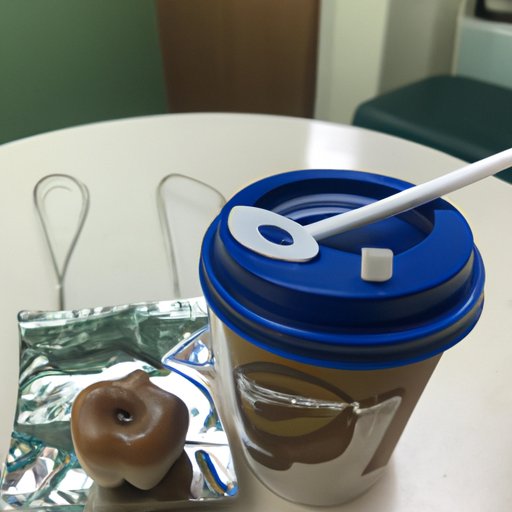Introduction
Tooth extraction is a dental procedure that involves removing a tooth from its socket in the jawbone. This procedure is typically done when a tooth is severely damaged or decayed and cannot be saved with a root canal or other restoration. While it can be unpleasant, it is often necessary to protect your oral health. After a tooth extraction, many people wonder when they can resume their regular routine, including drinking coffee.
How Long Should You Wait to Drink Coffee After a Tooth Extraction?
How long you should wait to drink coffee after a tooth extraction will depend on several factors, such as the type of extraction, whether you had anesthesia or not, and your overall health. Generally speaking, it is best to wait at least 24 hours before consuming coffee or any other hot beverages. This gives your body enough time to heal and reduces the risk of complications.
In addition, your dentist may suggest waiting up to 48 hours before consuming anything other than water. This is especially important if you had an impacted tooth removed, as this type of extraction is more likely to cause bleeding and swelling. Your dentist will be able to provide you with specific guidelines based on your individual situation.
Does Drinking Coffee After a Tooth Extraction Affect the Healing Process?
Drinking coffee after a tooth extraction can affect the healing process in several ways. The heat from the beverage can cause the wound to bleed and can make the area more prone to infection. In addition, the caffeine in coffee can increase blood pressure and heart rate, which can interfere with the healing process.
A study published in the European Journal of Oral Implantology found that drinking hot beverages after a tooth extraction may increase the risk of developing dry socket. Dry socket is a common complication of tooth extraction where the bone and tissue in the socket become exposed due to lack of proper healing. This can lead to pain, swelling, and even infection.
The Pros and Cons of Drinking Coffee After a Tooth Extraction
There are both pros and cons to drinking coffee after a tooth extraction. On the one hand, coffee can help reduce pain and inflammation associated with the healing process. In addition, it can provide a much-needed energy boost during recovery. However, there are also some potential risks associated with consuming coffee too soon after a tooth extraction.
The most significant risk is that drinking coffee can interfere with the healing process and increase the risk of developing dry socket. In addition, drinking coffee too soon can cause increased pain and discomfort, as well as increase the risk of infection. Therefore, it is important to understand the potential risks and benefits before consuming coffee after a tooth extraction.

What You Need to Know About Drinking Coffee After a Tooth Extraction
Before consuming coffee after a tooth extraction, it is important to discuss it with your dentist. They can provide you with specific guidelines based on your individual situation. In general, it is best to wait at least 24 hours before consuming coffee or any other hot beverages. This gives your body enough time to heal and reduces the risk of complications.
It is also important to take precautions when consuming coffee after a tooth extraction. Avoid drinking coffee that is too hot, as this can cause further irritation to the wound. Additionally, avoid adding sugar or cream to your coffee, as these ingredients can increase the risk of infection. Finally, it is important to monitor your symptoms closely and contact your dentist immediately if you experience any pain, swelling, or bleeding.
Conclusion
Drinking coffee after a tooth extraction can be beneficial, but it is important to proceed with caution. It is best to wait at least 24 hours before consuming coffee or any other hot beverages. In addition, it is important to take precautions when consuming coffee, such as avoiding adding sugar or cream and drinking only lukewarm beverages. Finally, it is important to monitor your symptoms closely and contact your dentist immediately if you experience any pain, swelling, or bleeding.
(Note: Is this article not meeting your expectations? Do you have knowledge or insights to share? Unlock new opportunities and expand your reach by joining our authors team. Click Registration to join us and share your expertise with our readers.)
